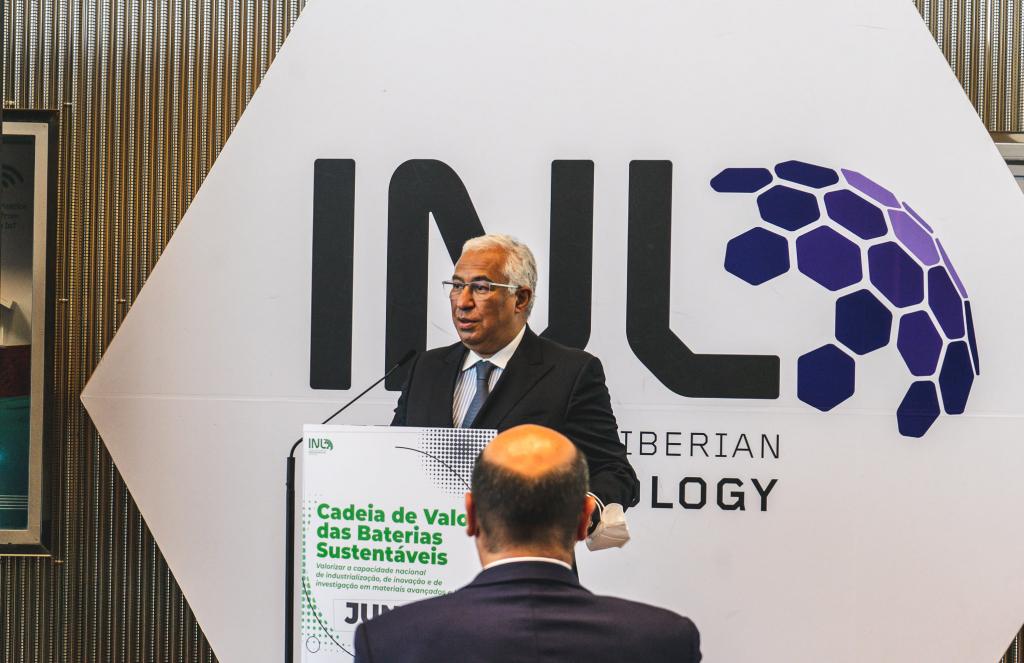Thessaloniki gets ready for its metro launch in November
The underground rapid transit lines have been under construction for almost two decades due to various project delays
 TheMayor.EU logo
TheMayor.EU logo 
Prime Minister Antonio Costa emphasizing the need for Portuguese leadership in the energy transition field, Source: INL - International Iberian Nanotechnology Laboratory
‘Baterias 2030’ will seek to develop the energy storage of the future
A common problem with energy derived from renewable sources is that its production is intermittent. This can create issues with regular supply and planning in consumption, especially for energy communities that are trying to combine autonomy and sustainability.
The solution, according to a consortium of Portuguese companies, academia and researchers, is batteries. Batteries which will form part of the sustainable energy production circle in buildings and ensure storage for later needs. Such tools may not yet exist, but their development is the goal of the ‘Baterias 2030’ project, officially presented on 30 July and set to take place in the city of Braga.
The project counts on the collaboration of the Municipality of Braga in the implementation of the living laboratory for decarbonization in the generation of an innovation space, which will be the most visible phase of the initiative. The building will feature 15 different technologies for energy production, storage and management, including state-of-the-art photovoltaic façades, different types of batteries, as well as innovative systems for energy production from hydrogen. Technologies that are not yet commercialized will be tested in life-like settings.
This, however, will be the fifth stage of the initiative that has attracted 8.3 million euros of investment. The first four stages will focus on the technical and scientific domains and will count with concrete design-develop-validate objectives for:
The sixth phase will be concerned with the dissemination of the innovations born out of the project.
‘Baterias 2030’ is a strategic initiative, which counts with great attention and support from the Portuguese government, as it will be a showcase of local ingenuity and contribution towards the larger European goals for climate neutrality. It is set to last for two years.

The underground rapid transit lines have been under construction for almost two decades due to various project delays

Now you can get your wine in Talence by paying directly in Bitcoin

That’s because the state has to spend money on updating the railway infrastructure rather than subsidizing the cost of the popular pass

Rethinking renewable energy sources for the urban landscape

The examples, compiled by Beyond Fossil Fuels, can inform and inspire communities and entrepreneurs that still feel trepidation at the prospect of energy transition

Now you can get your wine in Talence by paying directly in Bitcoin

The 10th European Conference on Sustainable Cities and Towns (ESCT) sets the stage for stronger cooperation between the EU, national and local level to fast track Europe's transition to climate neutrality.

At least, that’s the promise made by the mayor of Paris, Anne Hidalgo

The underground rapid transit lines have been under construction for almost two decades due to various project delays

At least, that’s the promise made by the mayor of Paris, Anne Hidalgo

Hostal de Pinós is located in the geographical centre of the autonomous region

Despite its church-y name, the district has long been known as the hangout spot for the artsy crowds

Urban dwellers across the EU are having a say in making their surroundings friendlier to people and the environment.

Forests in the EU can help green the European construction industry and bolster a continent-wide push for architectural improvements.

Apply by 10 November and do your part for the transformation of European public spaces

An interview with the Mayor of a Polish city that seeks to reinvent itself

An interview with the newly elected ICLEI President and Mayor of Malmö

A conversation with the Mayor of Lisbon about the spirit and dimensions of innovation present in the Portuguese capital














